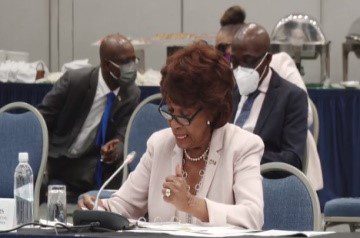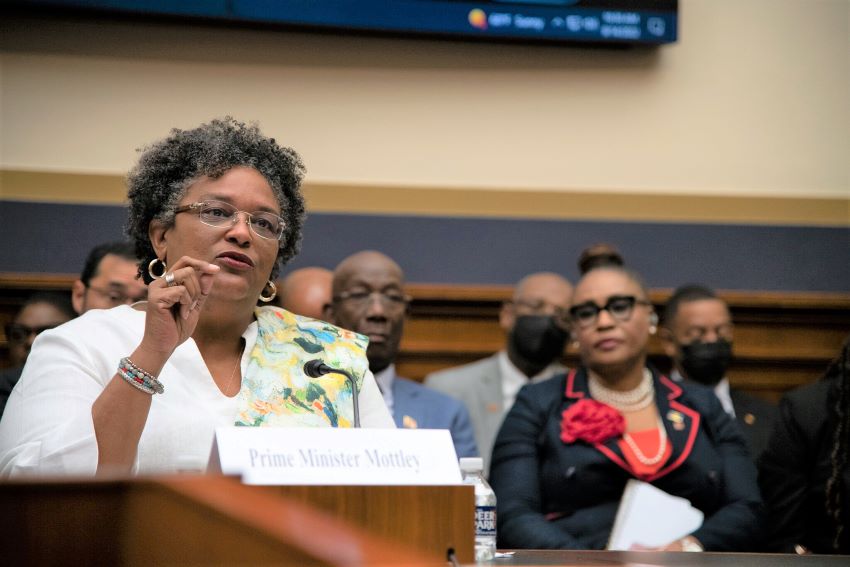St Kitts and Nevis (WINN): Attempts are continuing by CARICOM and individual member states to address the correspondent banking issue causing consternation in the banking community in the region.
Foreign Affairs Minister Mark Brantley says the process which began some time ago, continues apace.
“Going back to the leadership of Prime Minister Barrow of Belize at the last heads meeting in Belize, we have seen a stepping up of CARICOM and CARICOM leadership on this particular issue. It has been describes as an existential threat to our countries and our economies and I think that that is accurate. I can tell you that we have raised it with the United States government, the Prime Minister met with US State and treasury officials as recently as early this year. I met in the Bahamas with the foreign minister from the United Kingdom and that issue was raised there at the UK/CARICOM Summit and we have raised that issue with others such as Sweden, The Netherlands , Italy all of whom were seeking election to the UN security council.”
Foreign Affairs Minister Brantley says some progress has been made, even while some banks in the region continue to lose their correspondent banking relations with international banks in the US and elsewhere.
“We have had commitments from those in the EU to be our allies on this the UK also committed on this. The public must understand that part of the argument we are getting is that it’s a private issue that these are banks making business decisions. That was a position advanced by the UK foreign minister in the Bahamas and I had to intervene to say that really it is not so easy and that glib response would not do for the simple reason that of course banks in the US are responding to the regulatory regime that has been created by governments and their response, over- zealous as it is at times, to that regulatory regime they’re saying that the banking sector in these countries are not worth it in terms of money.”
There is a related development, Minister Brantley says, that might help the Caribbean case. It rests somewhat on European/Iranian relations.
“Europe was now deeply concerned because Europe wants to immediately start to engage with Iran doing significant business but European bank themselves were fearful that they would come and invoke the ire of American regulators if they were to do certain things and I was quite surprised to hear that Iran had reopened embassies but that Iranian officials were transporting large sums of money in cash in order to make payments because they could not get banking facilities. So in a way while it’s impacting the Caribbean it is a wider impact and it is one now that Europe and others are taking notice of because it is affecting their ability to invest and do business with Iran.”
The de-risking issue, as the correspondent banking matter is also referred to, is being discussed by CARICOM heads of government at their summit in Guyana.
Governor of the Eastern Caribbean Central Bank Timothy Antoine said last month that the ECCB is in discussions with U.S. authorities on potential fallout the region can face because of curtailing of correspondent banking relations.
Since passage of the Foreign Account Tax Compliance Act –FATCA and other laws designed to control laundering and terrorism, financial institutions in the United States have grown skeptical as they see the Caribbean as a potential risk.
ECCB Governor Antoine is quoted as saying that other banks with branches in member states have pulled out or found it difficult to transact business, especially wiring funds through offshore banks.






